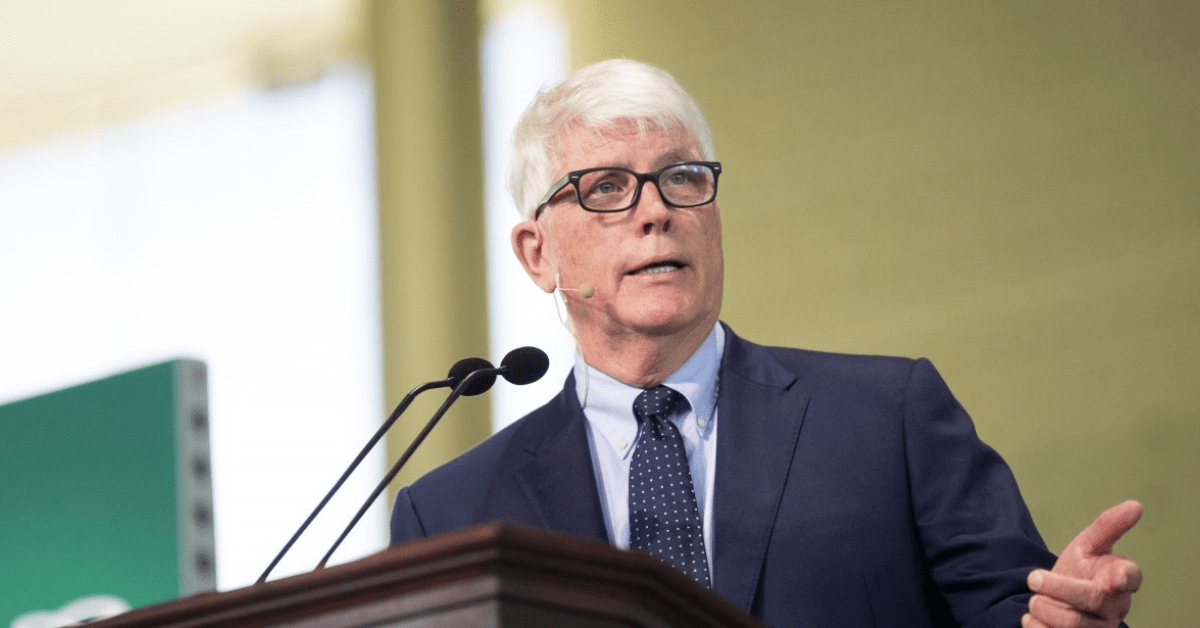In a surprising turn of events, longtime Washington Post columnist and conservative radio host Hugh Hewitt resigned from the newspaper on Friday after an intense debate on its live broadcast platform, Washington Post Live. The incident, which ended with Hewitt walking off the show “First Look” mid-broadcast, marked a public display of the ideological struggles within The Post and the broader challenges facing traditional media in today’s polarized environment.
Hewitt, a contributing columnist since 2017 and one of The Post’s rare conservative voices, was discussing election integrity with host Jonathan Capehart and fellow columnist Ruth Marcus when the debate took a sharp turn. The conversation centered around former President Donald Trump’s recent legal challenges in Pennsylvania, where the Republican Party won a case alleging voting irregularities. Capehart questioned whether Trump’s rhetoric signaled preparations to contest the 2024 election results if he lost. Marcus, a liberal commentator, responded critically, suggesting that Trump only deems an election fair if he wins.
Hewitt, a vocal supporter of Trump in recent years, interjected to clarify the court ruling, which mandated changes in Pennsylvania’s voting procedures. He emphasized that, despite holding opinions, they were “news people” and had a responsibility to report the complete story, including the court’s favorable ruling for the GOP. Tensions flared when Capehart interrupted Hewitt, asserting that the conservative often presented information lacking factual support. Hewitt, visibly frustrated, removed his earpiece and declared, “I won’t come back, Jonathan. I’m done. This is the most unfair election ad I’ve ever been a part of.”
His exit left both Capehart and Marcus momentarily stunned, with Marcus’s screen freezing shortly after, which led to technical difficulties that ended the livestream.
A Resignation Amid Rising Tensions at The Post
Hewitt confirmed his resignation to Fox News shortly after the broadcast, mentioning that he had notified The Post’s editorial page editor earlier in the day. He expressed dissatisfaction with what he saw as increasing bias at The Post and frustration with the perception that his views were not valued in a predominantly liberal newsroom. While Hewitt contributed columns every six weeks, his articles, often defending conservative positions, represented a perspective that has become rare at The Post.
The timing of his resignation is notable, given the recent internal unrest at The Post. Just a week before, The Post’s owner Jeff Bezos made the unprecedented decision to halt presidential endorsements, a departure from the newspaper’s long history of backing Democratic candidates. Reportedly, The Post was prepared to endorse Vice President Kamala Harris, maintaining its decades-long tradition of supporting Democratic contenders. However, Bezos decided to break from this pattern, citing a desire to build trust with a readership increasingly skeptical of mainstream media. The move caused friction within The Post, with several editorial board members resigning and hundreds of thousands of readers canceling subscriptions in response.
Hewitt’s departure, unexpected for a conservative voice, is seen by some as a setback for Bezos’s vision of balancing the editorial page. According to reports, Bezos had encouraged recruiting more conservative columnists, but Hewitt’s resignation now poses a challenge to achieving this goal.
A Reflection of Broader Challenges
Hewitt’s exit is the latest example of the struggles faced by mainstream media outlets striving to balance diverse political perspectives. The Post’s leadership has been under pressure to maintain its liberal leanings while also trying to appeal to a politically diverse audience. For some conservative readers and commentators, Hewitt’s experience on “First Look” epitomizes what they see as an inhospitable environment for differing viewpoints within media institutions that lean left.
As media companies like The Post attempt to manage ideological diversity and journalistic integrity, the incident underscores the deep political and cultural divisions that have made such balancing acts more complex. With its reputation, audience trust, and internal morale all affected by these divisions, The Washington Post faces a critical moment in defining its identity and approach to political discourse.
Conclusion
Hugh Hewitt’s resignation reflects both the internal challenges at The Washington Post and the broader issue of how traditional news outlets navigate political diversity in an increasingly divided landscape. As The Post moves forward, the question remains whether it can genuinely reflect a full spectrum of viewpoints while retaining the trust of a broad and diverse audience.
